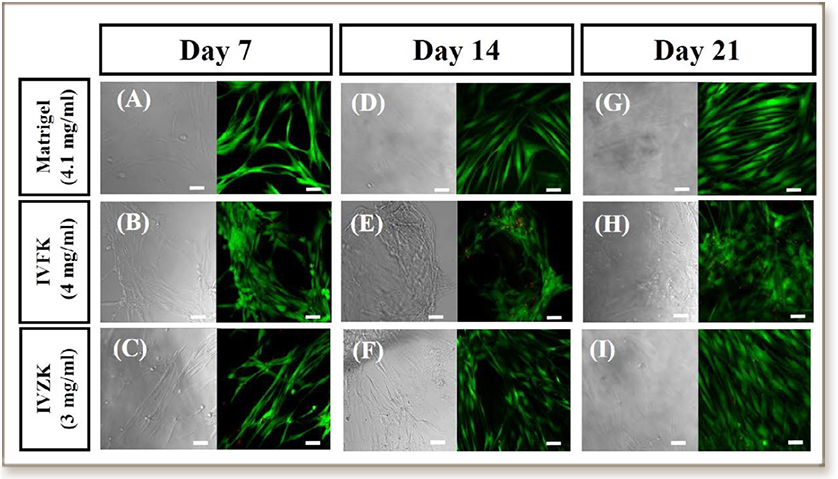
Evaluation of peptide nanogels for accelerated wound healing in normal micropigs
W.T. Arab, A.M. Niyas, K. Seferji, H.H. Susapto and C.A.E. Hauser
Frontiers in Nanoscience and Nanotechnology, 2018

Non-healing chronic wounds are one of the more severe complications, which eventually lead to amputations. There is a clinical need for dressings that enhance healing of chronic wounds. An advanced wound dressing aims to keep wound tissues moist and offer increased healing rates, prevent scar formation, reduce pain, minimize infection, improve cosmetics, and lower overall health care costs. We have previously developed tetrameric peptide nanogels Ac-IVZK-NH2 (Ac-Ile-Val-Cha-Lys-NH2) and Ac-IVFK-NH2 (Ac-Ile-Val-Phe-Lys-NH2) that self-assemble into nanofibrous hydrogels with biomimetic properties resembling collagen. In our study, we tested if these nanogels would fulfill some of the wound healing criteria mentioned above. We found that the nanogels are suitable scaffolds for encapsulating human dermal fibroblast. We selected peptide nanogels Ac-IVZK-NH2 and Ac-IVFK-NH2 and additionally generated silver nanoparticles in situ within the nanogels to evaluate their efficacy on micropigs with full-thickness excision wounds. For the in situ generation of the silver nanoparticles no reducing agent but solely UV irradiation was used. Applying the peptide nanogels on full thickness micropig wounds demonstrated that the scaffolds were biocompatible and did not trigger wound inflammation. Thus, we believe that the scaffolds are safe for topical application. Comparing the effect of both nanogels even without the addition of silver nanoparticles revealed that the scaffold itself has a high potential to act as an antibacterial agent, which may restrain the inflammatory reaction and suppress the activity of proteases. Interestingly, the peptide nanogels exhibited a comparable effect in wound closure similar to standard care hydrogels. Our promising results with tetrameric peptide nanogels for wound healing purposes still need more thorough investigations. We want to understand the molecular basis underlying the enhancement of wound healing in respect to peptide nanogels. This will support the urgent demand for advanced treatments of diabetic wounds, based on scientifically and clinically validated studies.

"KAUST shall be a beacon for peace, hope and reconciliation, and shall serve the people of the Kingdom and the world."
King Abdullah bin Abdulaziz Al Saud, 1924 – 2015
Thuwal 23955-6900, Kingdom of Saudi Arabia
Al-Haytham Building (Bldg. 2)
© King Abdullah University of Science and Technology. All rights reserved